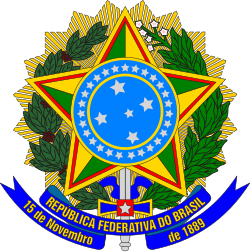| ||||||||||||||||
Presidential election | ||||||||||||||||
| ||||||||||||||||
 Results by state | ||||||||||||||||
| ||||||||||||||||
| This article is part of a series on the |
 |
|---|
General elections were held in Brazil on 1 March 1894 to elect the president and both houses of Congress. [1] [2] The presidential election was won by Prudente de Morais of the Paulista Republican Party, who received 80% of the vote. [3]

